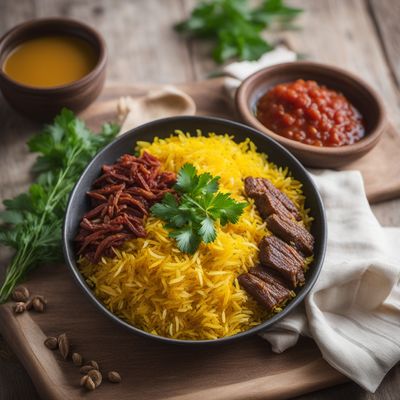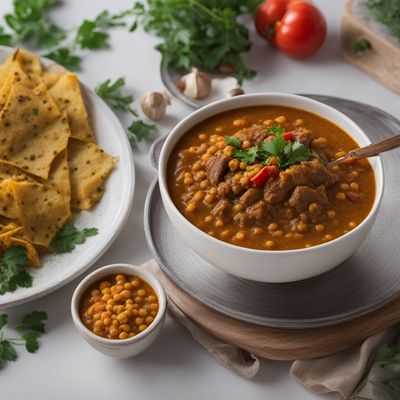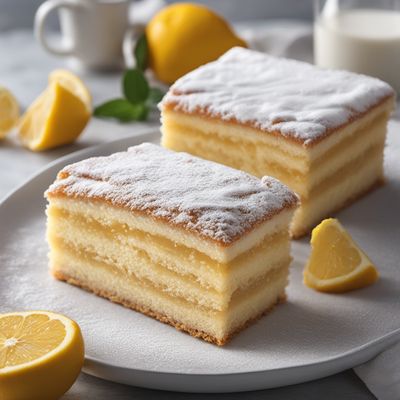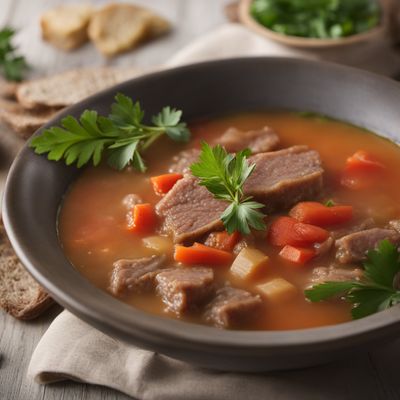
Recipe
Roman-style Herb Frittata
Mediterranean Herb Omelette: A Roman Twist on Kuku Sabzi
4.7 out of 5
Indulge in the flavors of ancient Rome with this delightful Roman-style Herb Frittata. Inspired by the Iranian dish Kuku Sabzi, this recipe combines fresh herbs, vegetables, and eggs to create a savory and aromatic omelette that will transport you to the heart of the Mediterranean.
Metadata
Preparation time
15 minutes
Cooking time
15-17 minutes
Total time
30-32 minutes
Yields
4 servings
Preparation difficulty
Easy
Suitable for
Vegetarian, Mediterranean, Gluten-free, Low-carb, Keto-friendly
Allergens
Eggs
Not suitable for
Vegan, Dairy-free, Paleo, Nut-free, High-protein
Ingredients
While the Roman-style Herb Frittata draws inspiration from the Iranian Kuku Sabzi, it incorporates Roman culinary traditions and flavors. The original dish typically includes ingredients like fenugreek leaves and barberries, which are not commonly found in Roman cuisine. In this adaptation, these ingredients are replaced with Roman staples such as spinach and leeks, which lend their own unique flavors and textures to the dish. Additionally, the cooking technique differs, with the frittata being cooked in a pan rather than baked in the oven. We alse have the original recipe for Kuku sabzi, so you can check it out.
-
6 large eggs 6 large eggs
-
1 cup (240ml) fresh parsley, finely chopped 1 cup (240ml) fresh parsley, finely chopped
-
1 cup (240ml) fresh dill, finely chopped 1 cup (240ml) fresh dill, finely chopped
-
1 cup (240ml) fresh mint, finely chopped 1 cup (240ml) fresh mint, finely chopped
-
1 cup (240ml) fresh spinach, finely chopped 1 cup (240ml) fresh spinach, finely chopped
-
1 cup (240ml) leeks, thinly sliced 1 cup (240ml) leeks, thinly sliced
-
1/2 teaspoon salt 1/2 teaspoon salt
-
1/4 teaspoon black pepper 1/4 teaspoon black pepper
-
2 tablespoons olive oil 2 tablespoons olive oil
Nutrition
- Calories (kcal / KJ): 180 kcal / 753 KJ
- Fat (total, saturated): 14g, 3.5g
- Carbohydrates (total, sugars): 4g, 1g
- Protein: 10g
- Fiber: 2g
- Salt: 0.6g
Preparation
-
1.In a large bowl, whisk the eggs until well beaten.
-
2.Add the chopped parsley, dill, mint, spinach, leeks, salt, and black pepper to the bowl. Mix well to combine.
-
3.Heat olive oil in a non-stick frying pan over medium heat.
-
4.Pour the egg mixture into the pan and spread it evenly.
-
5.Cook the frittata for about 8-10 minutes, or until the edges are set and the center is slightly jiggly.
-
6.Carefully flip the frittata using a large spatula or by sliding it onto a plate and inverting it back into the pan.
-
7.Cook for an additional 5-7 minutes, or until the frittata is cooked through and golden brown.
-
8.Remove from heat and let it cool for a few minutes before slicing.
-
9.Serve warm or at room temperature.
Treat your ingredients with care...
- Eggs — Make sure to whisk the eggs well to incorporate air and create a fluffy texture.
- Fresh herbs — Ensure the herbs are finely chopped to evenly distribute their flavors throughout the frittata.
- Leeks — Thoroughly wash the leeks to remove any dirt or sand trapped between the layers.
Tips & Tricks
- For added richness, sprinkle grated Pecorino Romano cheese on top of the frittata before flipping it.
- Experiment with different herb combinations to suit your taste preferences.
- Serve the frittata with a dollop of creamy ricotta cheese or a drizzle of balsamic glaze for extra flavor.
- Leftover frittata can be refrigerated and enjoyed cold or reheated gently in a pan.
Serving advice
Slice the Roman-style Herb Frittata into wedges and serve it as a main course for brunch or a light dinner. Accompany it with a fresh green salad and crusty bread to complete the meal.
Presentation advice
Garnish the frittata with a sprinkle of fresh herbs and a drizzle of olive oil for an elegant touch. Serve it on a platter or individual plates to showcase its vibrant colors.
More recipes...
For Kuku sabzi
For Iranian cuisine » Browse all
More Iranian cuisine dishes » Browse all

Sholeh ghorbandi
Rice with lentils and dates
Sholeh ghorbandi is a traditional Iranian stew made with lamb or beef, chickpeas, and a variety of spices. It is a hearty and flavorful dish that...

Khoresh kadu
Pumpkin stew
Khoresh kadu is a Persian pumpkin stew that is slow-cooked with meat and spices. The dish is known for its sweet and savory flavor that is created...

Khoresht-e-chaghartameh
Artichoke stew
Khoresht-e-chaghartameh is a traditional Persian dish made with lamb and sour grapes. It is a flavorful and tangy meal that is perfect for a...








